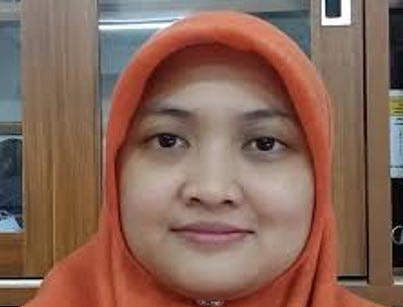91st Doctoral Promotion
Promovenda Ni Kadek Dessy Hariyanti succeeded in her doctoral dissertation exam and became the 91st PhD of the Study Program of Doctoral Engineering Science (PSDIT), Faculty of Engineering, Udayana University. The dissertation titled Semantic Ontology Based Modeling for Representation of Subak Knowledge Management System received a cumlaude predicate.
Dr. Ni Kadek Dessy Hariyanti explained that the Development of Ontology as a Knowledge base provides the structure, meaning, and interoperability needed for Knowledge Management. Cultural heritage Knowledge, both tacit and explicit, is currently fragmented in various parts of the world, so it is necessary to digitize cultural heritage. Meanwhile, Subak is an irrigation and agricultural Management organization based on Balinese customs with the Tri Hita Karana principle, which has existed for centuries as a cultural heritage that still exists today. This study aims to preserve traditional Knowledge about Subak by delving deeper throug h ontology. This is important because oral Knowledge and practices passed down from generation to generation can be lost over time. Ontology will help ensure this Knowledge remains documented and accessible to future generations.
This study aims to develop semantic ontology-based modelling for the representation of a Subak Knowledge Management System to improve the efficiency, accessibility, and sustainability of Subak Knowledge. The research method used involves the following steps: (1) Knowledge Acquisition, which begins with a SWOT analysis of the current condition of Subak and continues with data collection about the Subak System through field observations, interviews and analysis of related literature. (2) Knowledge Creation, namely the Development of Subak ontology with the Ontology Development Model Development method (3) Knowledge Evaluation, namely conducting testing and evaluating Knowledge Management System in Content validation and ontology quality.
The results of this study, which is in the form of a Subak Knowledge ontology model, are expected to significantly contribute to advancing Subak practices and supporting efforts to preserve local culture and Knowledge. Five experts have evaluated the resulting ontology by applying three types of evaluations, which, overall, found that the ontology met the adequacy of Knowledge. Content validity evaluation shows that the Subak ontology meets the level of Knowledge adequacy with an average Content validity score of 4.28. Ontology Evaluation Criteria show a completeness value of 4.64, consistency of 4.78, conciseness of 5, preciseness of 4.95, and clarity of 5. While ontology quality assessment is measured by RR (Relationship Richness) value 0.57, IR (Inheritance Richness) 0.32, AR (Attribute Richness) 2.19, AP (Average Population) 8.56, CR (Class Richness) 0.86, ARC (Absolute Root Cardinality) 33 out of 37, AC (Absolute Leaf Cardinality) 25 out of 37, AD (Average Depth) 4 out of 37, MD (Max Depth) 4, AB (Avg Breadth) 4 out of 37 and MB (Max-Breadth) 4. In addition, this study also provides insight into how semantic ontology can be used more widely to represent traditional Knowledge Systems and community based Knowledge Management.
The promoter, co-promoters I and II, are Prof. Ir. Linawati, M.Eng.Sc., PhD., IPU, Prof. Dr. Ir. I Made Oka Widyantara, ST.,MT., IPU, ASEAN. Eng and Dr. Nyoman Putra Sastra, ST., MT. respectively.




FACULTY OF ENGINEERING